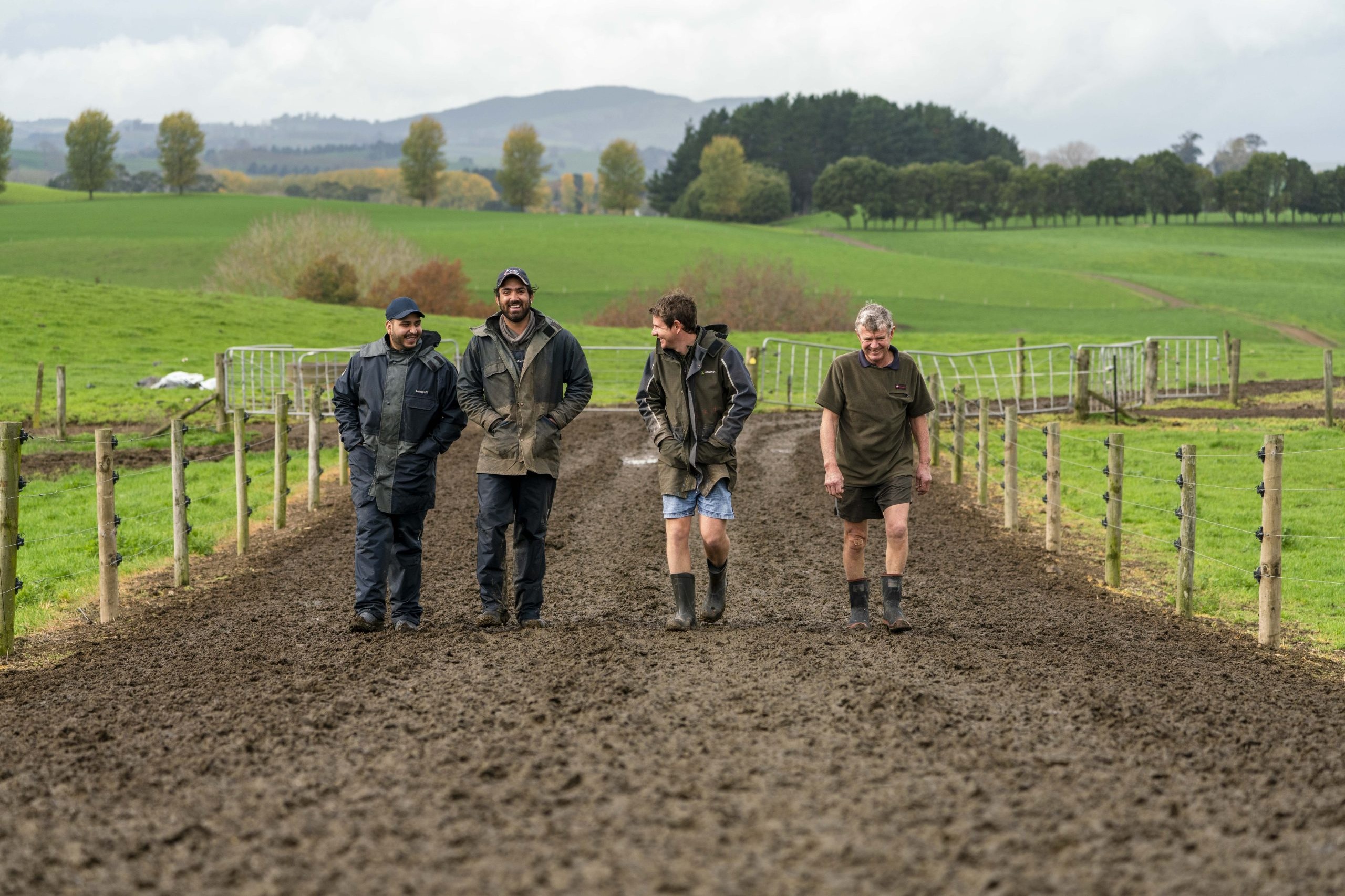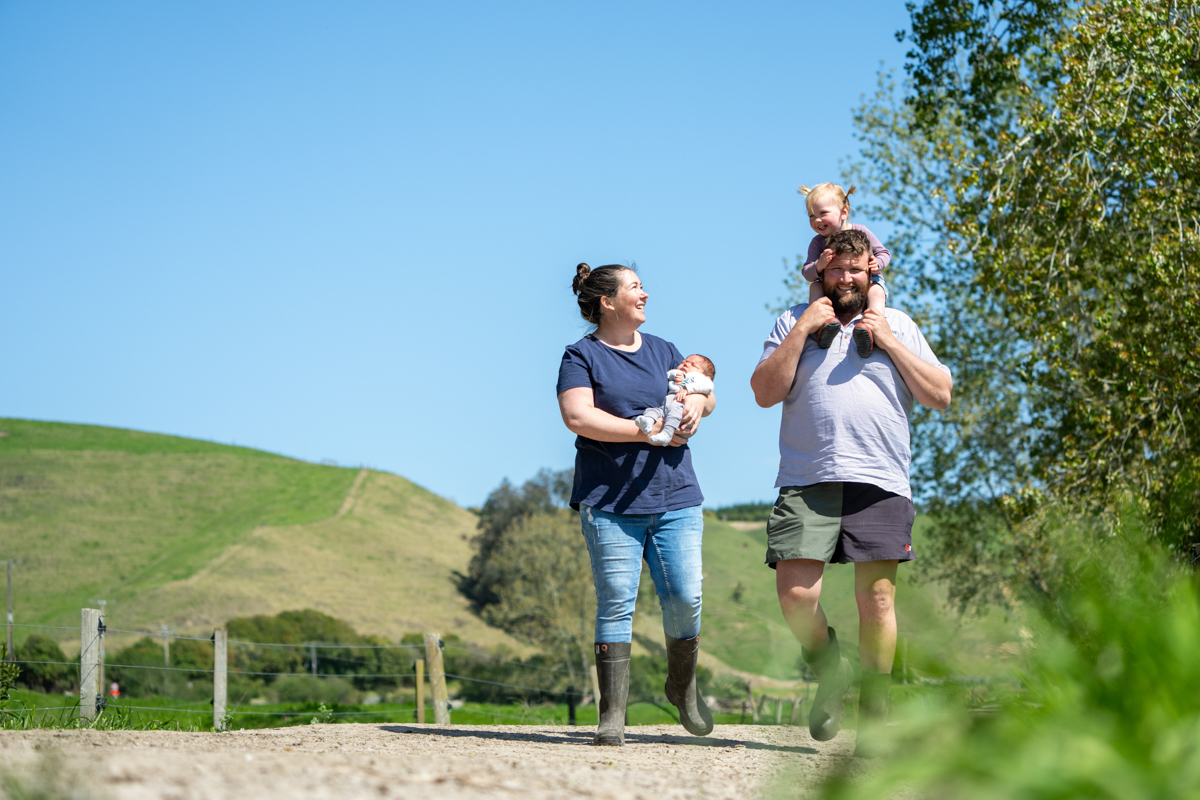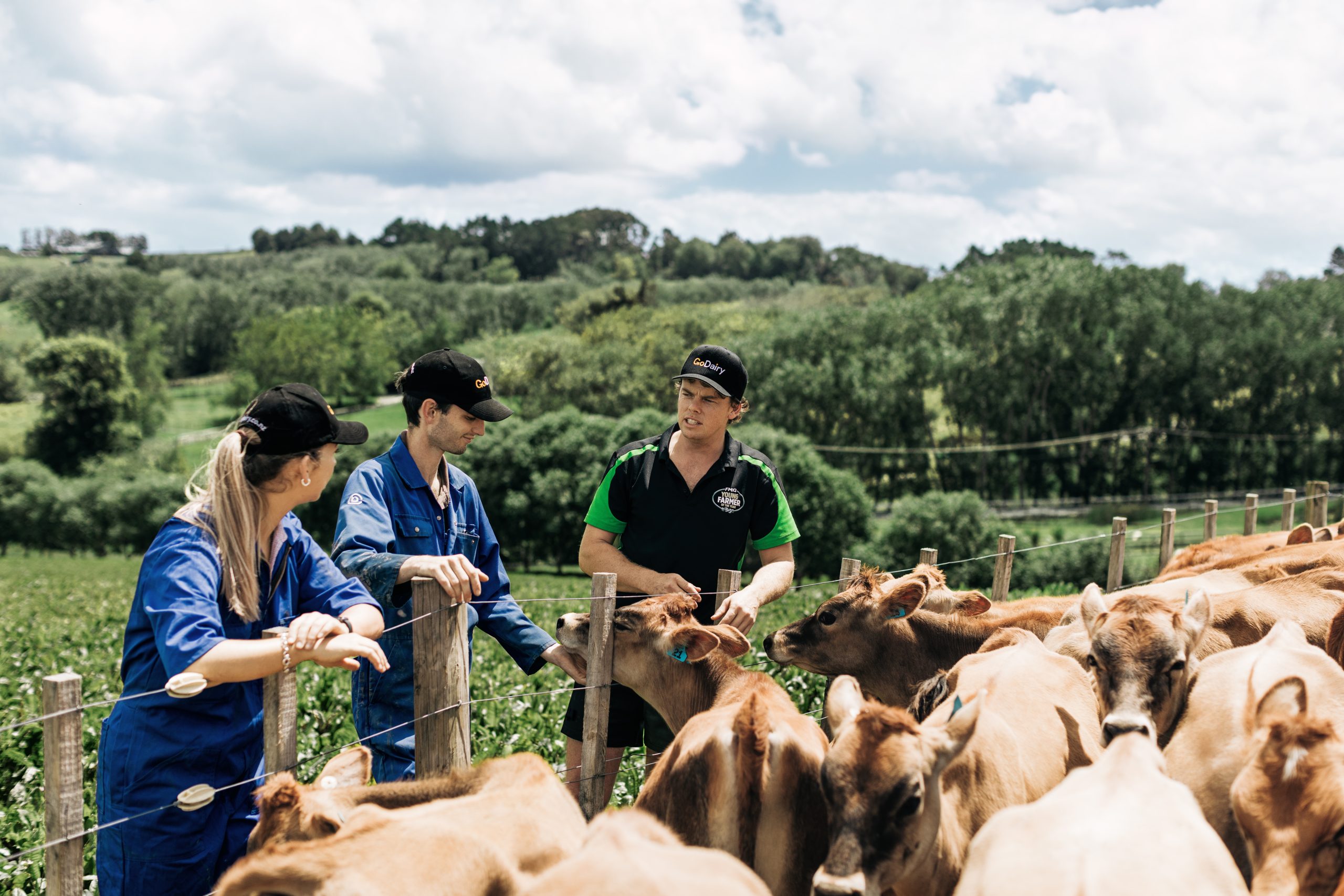Will Gibson has a passion for breeding and genetics and now has a stud Hereford herd of 50 cows. Anne Calcinai reports.
Buoyant beef markets are an opportunity to improve commercial genetics, but not a time for breeders to become complacent.
Hereford breeder Will Gibson says commercial farmers have so many options when choosing where to buy sire bulls.
“We can’t just rest on the laurels of good price, we’ve got to keep production and performance ticking along,” Will says.
“If things are tracking along like this it’s a great opportunity to buy good genetics because you’ve got a bit more fat in the system.”
The 24-year-old is pursuing his passion for breeding and genetics through his role as New Zealand Merino Central Otago regional manager.
Will and his parents Anton and Liz run Foulden Hill Genetics on their Middlemarch farm, which includes Hereford, Santa Gertrudis, Suffolk and Merino studs, plus a commercial ultra-fine wool Merino flock.
The family started their Santa Gertrudis stud in 2004, the same year Will started his own coloured Merino sheep stud.
Will started Hereford breeding five years later, with some females bought at a dispersal sale.
His stud herd has about 50 Hereford cows calving this year, a similar size to the family’s Santa Gertrudis stud.
Will says the markets for beef and lamb right now are ‘unbelievable’ and their ultra-fine wool is also achieving pleasing prices.
However, the Gibsons have had more than good prices to celebrate this season. Foulden Hill Mustang became the first animal to be awarded both junior and senior meat and wool cups in the same year and supreme all breeds beef animal at the Canterbury A & P Show in November.
Runner-up was one of the family’s Santa Gertrudis cows, with calf at foot. Will says it was the first time in the show’s 155-year history that one exhibitor has achieved this.
“It’s an absolute thrill to have him come out the winner, from being judged by a number of judges during the two-day event.”
Will says showing cattle is a great way to gain exposure, especially as Foulden Hill Genetics are relatively new to the industry.
“The bulls and females we bring forward need top breeding values so when they do go out into the industry they are adding something to the industry.
“Anything we show needs rounded set of EBVs and a good package of phenotype and structure.”
Foulden Hill Mustang followed this up at the Wanaka Show in March, claiming champion male and supreme cattle beast titles. A Foulden Hill Santa Gertrudis cow with calf at foot won champion female.
The impressive bull will be offered for sale at this year’s Beef Expo.
Will sold a Hereford bull at expo last year for $17,000 and was involved in Future Beef as a youngster, which he says was a valuable learning experience, an opportunity to meet some great people and make some valuable connections in the beef industry. Will has been working for NZ Merino since graduating from Lincoln with an agricultural commerce degree, majoring in farm management with marketing as his minor.
Bull sales, ram sales and wool sales are his family’s biggest income drivers. Will studied marketing to gain insight into how consumers think and how to get the best financial reward for their products.
His role with NZ Merino includes managing the central progeny test. This involves a lot of recording and data management – tasks Will also enjoys in his own stud breeding.
“Merino NZ is really pushing for breeders to use EBVs.
“Breeding values are a big part of our operation and a big part of my beef stud, without sacrificing the traditional values of stockmanship and an animal looking the way it needs to look.”
Working full time from his base in Cromwell, Will has limited time to devote to farming. He gets to Middlemarch any spare weekends he can, but says good communication between himself and his parents helps keep things running well. Will says the mixture of stud and commercial breeds creates an interesting dynamic at Foulden Hill, as does selling their Hereford and Santa Gertrudis bulls at a combined sale with nearby Netherton Angus Stud.
Will says it’s a great community sale, with great local support.
“There’s a real good feel about it and there’s been some pretty pleasing results.”
Will enjoys the challenge of stud breeding, but says working off-farm is a way to experience the wider agricultural industry and hopefully learn ways to help improve their farming business down the track.
“Every day is a new opportunity to learn and, certainly in my current job, I am given this opportunity.
“There’s never an end. There’s a balance, but there’s always something that can be done differently and improved on.”
As much as they enjoy stud breeding, it must come down to profitability.
“With our Herefords, we’re mindful of the fact they’re a maternal breed, but we do have to have growth, confirmation and carcase.
“Chasing the right sires to take you in that direction is a big part of it.
“We’ve got a passion for it, but we’re in the business of offering stock to commercial sheep and beef farmers who want to improve their genetics to improve profitability.”





